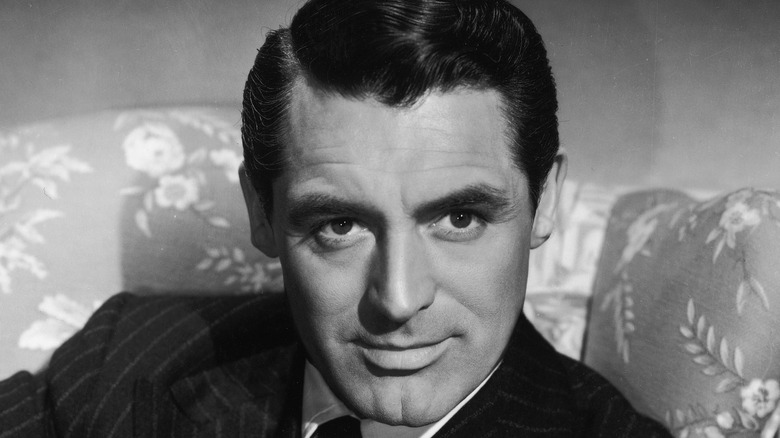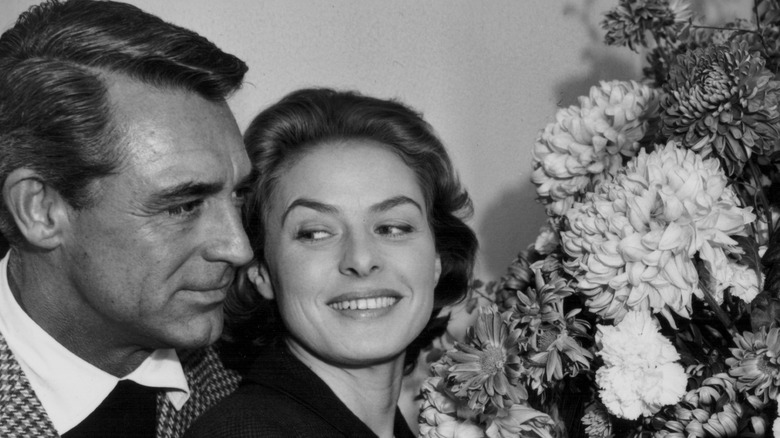How Did Cary Grant Want To Be Remembered?
Although Cary Grant is still remembered — nearly 40 years after his death — as a peerlessly appealing and suave leading man who could also bring the house down with his stiletto-sharp comic timing, his own ambitions for his legacy were far more modest.
Since the early 1970s, it's been de rigeur for actors of all genders to cultivate a reputation as being chameleonic on screen, disappearing into as many varied roles as possible, and avoiding roles that are too similar, so as to avoid being typecast as The Noble Guy Who Dies In Everything (see: Sean Bean) or The Tough Cookie From Appalachia (such as Dale Dickey).
Cary Grant was a classic film star, a man of his time who embraced typecasting at every turn, dismissing criticism by asking "Well, who else could I portray? I can't portray Bing Crosby; I'm Cary Grant. I'm myself in that role. The most difficult thing is to be yourself — especially when you know it's going to be seen immediately by 300 million people" (via Interview). Nonetheless, as film scholar Karina Longworth notes, within the narrow range of roles he favored, Grant was the kind of star who was impossible to take your eyes off, no matter the role (via Dazed Digital).
Cary Grant was modest to the end
Despite his undeniable magnetism and enduring fame, just four months prior to his death from a massive stroke in 1986, Cary Grant told Interview magazine that he wanted to be remembered as "a congenial fellow who didn't rock the boat, I suppose." With apologies to Mr. Grant for not adhering to his wishes, no amount of self-effacement on his part could overcome the charm and influence of his most significant roles. From screwball comedies to his collaborations with Alfred Hitchcock, Grant's urbane good looks and delightful screen presence remain irresistible and relevant today.
In his 1986 conversation with Kent Schuelke, however, Grant claimed that his own self-perception was purely utilitarian and scarcely mattered at all, saying "I can only see myself as a man of 82 who keeps on functioning. I do the best I can under the circumstances in which I've placed myself." However, the quality and enduring popularity of his body of work renders that earnest statement slightly absurd.
Thanks to so many of his films finding new life on television, his star never seemed to fade, and the age of streaming continues to bring new audiences to his work. It's impossible to imagine the career of a contemporary TV and film star like George Clooney — another actor famed for playing many variations on his own public persona as a handsome, dark-haired fellow possessed of irresistible, roguish charm — without the blueprint Cary Grant created.

